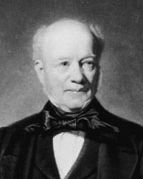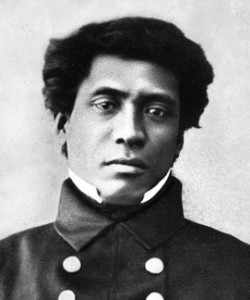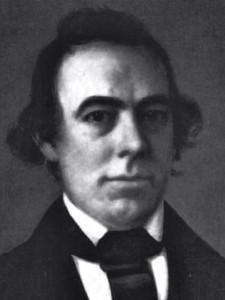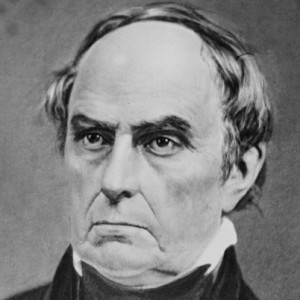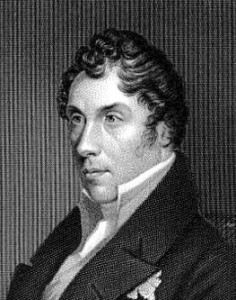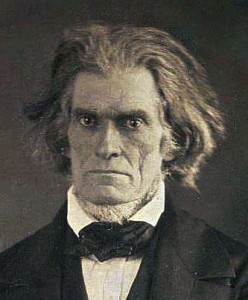The Hawaiian Kingdom filed an Amended Complaint on August 11, 2021. According to federal court proceedings, when a complaint is filed, a court must take the alleged facts as true. In reviewing a motion to dismiss, all allegations in the complaint and all reasonable inferences that can be drawn from the complaint must be accepted as true and viewed in the light most favorable to the complainant, which in this case is the Hawaiian Kingdom.
In its amended complaint, the Hawaiian Kingdom alleged that the foreign consulates named as defendants in the case are unlawful because they did not get permission to establish themselves as consuls from the Hawaiian Kingdom government. Instead, the consulates were given permission by the United States government. The United States can only give permission for consulates to be established within its own territory and not the territory of the Hawaiian Kingdom despite being belligerently occupied by the United States since 1893. The Hawaiian Kingdom is seeking the Court to declare that these foreign consuls are unlawful under both international law and Hawaiian Kingdom law.
While no media outlet is covering this case, it is gaining the attention of foreign countries that have consulates in Hawai‘i and the U.S. State Department. Since the lawsuit was initiated by the Hawaiian Kingdom on May 20, 2021, three countries closed their consulates in Hawai‘i—the Czech Republic, Finland and India.
Of the summons that were served, 12 foreign consulates failed to respond within 21 days and entries of default were entered by the Clerk of the Court. These foreign consulates include Austria, Belgium, Chile, Germany, Japan, Luxembourg, Netherlands, Norway, Philippines, South Korea, Spain, and Thailand. Default is where a defendant has failed to defend against a claim that has been brought by the filing of a complaint. By default, these foreign consulates accept the allegation of the Hawaiian Kingdom that it is true they are unlawful. The next stage is to get a judgment of default by the judge so that they can be ordered to close. The Hawaiian Kingdom, however, is prevented from filing a motion for judgment of default because the Court is not an Article II Court that operates in territory belligerently occupied by the United States.
Sweden was the only foreign consulate to respond by filing a Motion to Dismiss on September 21, 2021. Anders Nervell, who is also a law partner at Clay Chapman Iwamura Pulice & Nervell, is named as a defendant in his official capacity as Honorary Consul for Sweden. Nervell does not seek to dismiss the complaint in its entirety, but only over himself because he is claiming personal immunity from the jurisdiction of the federal court.
In his filing, Nervell claims that he is immune from jurisdiction of the federal court under article 71(1) of the Vienna Convention on Consular Relations. The Vienna Convention is a treaty that has been signed and ratified by 181 States, to include the United States.
The federal court ordered the Hawaiian Kingdom to file a response no later than October 20, 2021, and that if Nervell would like to file a reply to the Hawaiian Kingdom response, it must be no later than November 3, 2021.
On September 30, 2021, Federal Magistrate Rom Trader issued an Order granting permission for the International Association of Democratic Lawyers, the National Lawyers Guild and the Water Protectors Legal Collective (IADL-NLG-WPLC) to file their amicus brief that supports the Hawaiian Kingdom’s claim that the Court must transform itself into an Article II Court.
By granting permission, the Court will not only utilize the amicus brief to assist in its decision regarding its transformation into an Article II Court, but it also acknowledges the merit of the IADL-NLG-WPLC’s argument. If it were a frivolous argument, the Court would not have granted permission to file the brief because granting permission is at the discretion of the Court. The IADL-NLG-WPLC filed their amicus brief on October 6, 2021.
The Court’s Order and the filing of the amicus brief was timely for the Hawaiian Kingdom’s response to Nervell.
On October 19, 2021, the Hawaiian Kingdom filed its Response. While citing article XII of the 1852 Treaty of Friendship, Commerce and Navigation between the Hawaiian Kingdom and the Kingdoms of Sweden and Norway that requires any Swedish consul must be approved and admitted by the Hawaiian Kingdom and not by the United States, the Hawaiian Kingdom maintained that the “Court is compelled by international and U.S. constitutional law to first transform itself from an Article III Court to a de facto Article II Court before it may lawfully assert subject-matter and personal jurisdiction to address any of the issues raised” by Nervell. The Hawaiian Kingdom also maintained that Nervell was never a lawful Honorary Consul for Sweden approved by the Hawaiian Kingdom, and therefore could not claim to be protected by the Vienna Convention on Consular Relations. The Vienna Convention only applies to lawfully established consuls.
In its Response, the Hawaiian Kingdom drew attention to the jurisdiction of the court, which it stated in federal court proceedings, a judgment is void “if the court that rendered judgment lacked jurisdiction of the subject-matter, or of the parties, or acted in a manner inconsistent with due process.” In other words, before the Court can make any judgment in this lawsuit, which would include Nervell’s motion to dismiss, it needs to have lawful jurisdiction first. If it doesn’t, which is the position taken by the Hawaiian Kingdom and the IADL-NLG-WPLC in its amicus brief, all judgments made are void and of no effect. The filing of the amicus brief supported the Hawaiian Kingdom’s response.
The Hawaiian Kingdom, in its response, cited the U.S. Supreme Court, in Pennoyer v. Neff, which stated:
No State can exercise direct jurisdiction and authority over persons or property without its territory. The several States are of equal dignity and authority, and the independence of one implies the exclusion of power from all others. And so it is laid down by jurists as an elementary principle that the laws of one State have no operation outside of its territory except so far as is allowed by comity, and that no tribunal established by it can extend its process beyond that territory so as to subject either persons or property to its decisions.
On November 3, 2021, Nervell filed his Reply where he stated that the Hawaiian Kingdom merely gave, in its response, “tendentious ramblings regarding international law,” and it “can play no role here.” The irony of this statement is that the so-called “ramblings regarding international law” were along the same lines as the amicus brief regarding Article II Courts, which the Magistrate Judge accepted as having merit. In other words, international law regarding Article II Courts is playing a “role here.”
Two days later, on November 5, the United States Department of Justice filed a Statement of Interest attempting to influence the Court to dismiss all of the 30 defendant Consuls General and Honorary Consuls, and to set aside entry of default of the 12 Consuls General and Honorary Consuls. The United States filed its Statement of Interest “to set forth its views with respect to the immunity of the consular officers named as defendants in this lawsuit.”
Like Nervell, the United States also attempts to discredit the Hawaiian Kingdom. In its introduction, the United States stated that this “lawsuit is brought by a group of individuals who call themselves the ‘Council of Regency,’ which in turn purports to the be the government of the Hawaiian Kingdom (‘Plaintiff’). Plaintiff requests that the Court declare that the Council of Regency, not the democratically-elected government, is the rightful ruler of Hawaii.”
The United States also adopts the legal arguments in Nervell’s Motion to Dismiss, which provided the opportunity for the Hawaiian Kingdom to respond to the United States’ Statement of Interest, and also to reveal the errors in Nervell’s November 3 reply.
On November 7, 2021, the Hawaiian Kingdom filed its Response to the United States’ Statement of Interest. The Hawaiian Kingdom opened with:
By filing its statement of interest, the UNITED STATES engages in unfounded and disparaging remarks directed at Plaintiff in a poor attempt to present a false narrative of Plaintiff’s status and the UNITED STATES’ factual and undisputed recognition of that status. Exposure of this false narrative, as more fully set forth herein below, opens for clear view of an argument, by the UNITED STATES, that strains credibility and subject to terminable contradiction by the facts and laws presented in these proceedings.
In its Response, the Hawaiian Kingdom views the United States’ use of the term purport as “a pejorative statement inserted in a non-answer pleading that attempts to influence the Court that its argument that the Defendant Consulates have immunity from jurisdiction via the Vienna Convention on Consular Relations has merit.” The Hawaiian Kingdom goes on to state:
As the Council of Regency are officers de facto of a government, albeit a government of an occupied State where democratic principles have no play in a belligerent occupation, the UNITED STATES, as a government itself of an independent and sovereign State, must provide rebuttable evidence that another government of a co-equal independent and sovereign State is not what it claims to be. To do otherwise, is an insult to its dignity because the Council of Regency is the Head of the Hawaiian Kingdom government. According to Oppenheim,
“Since dignity is a recognized quality of States as International Persons, all members of the Family of Nations grant reciprocally to one another by custom certain rights and ceremonial privileges. (These are chiefly the rights to demand—that their heads shall not be libelled and slandered […].) Every State must not only itself comply with the duties corresponding to these rights of other States, but must also prevent its subjects from such acts as violate the dignity of foreign States, and must punish them for acts of that kind which it could not prevent. The Municipal Laws of all States must therefore provide for the punishment of those who commit offences against the dignity of foreign States, and, if the Criminal Law of the land does not contain such provisions, it is no excuse for failure by the respective States to punish offenders.”
Though it cites NERVELL’S REPLY, the UNITED STATES, like NERVELL, fails to counter the factual allegations in the Amended Complaint that: (a) the UNITED STATES, to include Sweden and all States of the other Consular Defendants, as members of the Permanent Court of Arbitration’s Administrative Council, acknowledged the HAWAIIAN KINGDOM as a non-Contracting State under Article 47 of the 1907 Hague Convention on the Pacific Settlement of International Disputes, and the Council of Regency as its government and; (b) the UNITED STATES, by its embassy in The Hague, entering into an agreement with the Council of Regency, as the government of the Hawaiian Kingdom, to have access to all records and pleadings of the arbitral proceedings.
The Response stated that the arguments by the United States and Nervell “are blatantly unsubstantiated denials and desperate attempts by both to distract this Court from the facts of this case. Furthermore, Sweden, as a co-equal sovereign and independent State is responsible for NERVELL’s pleadings, which has a tenor of arrogance.” The Hawaiian Kingdom then went on to address the flaws of Nervell’s citing of State of Hawai‘i and federal court decisions regarding the Hawaiian Kingdom as they serve as precedent cases. Nervell fails to mention that these decisions are in personam, which only bind the litigants of that particular case, and not decisions in rem, which would apply to a thing, such as the territory of the Hawaiian Kingdom.
All NERVELL cites in his reply is both State of Hawai‘i and federal court decisions regarding the Hawaiian Kingdom. These court decisions only reflect the allegations of facts made or not made by the defendants in the cases cited. It has no application to the instant case before this Court because these decisions are in personam and not in rem. What these decisions do provide, however, are instructional for defendants that claim the Hawaiian Kingdom exists in their particular case, to provide evidence of the Hawaiian State’s existence. NERVELL’S REPLY cites United States v. Lorenzo, where the court stated, “[t]he appellants have presented no evidence that the Sovereign Kingdom of Hawaii is currently recognized by the federal government (emphasis added).” The operative words here are “presented no evidence.”
NERVELL’s REPLY further goes on to cite Keliihuluhulu v. Keanaaina, where the federal court stated, “[a]s stated by the Hawai‘i Intermediate Court of Appeals (“ICA”), a statement that is as true now as it was when the ICA stated in 1994, ‘presently there is no factual (or legal) basis for concluding that the [Hawaiian] exists as a state in accordance with recognized attributes of a state’s foreign nature.’ Hawaii v. French, 77 Haw. 222, 228, 883 P.2d 644, 650 (CT. App. 1994) (quotations omitted) (emphasis added).” The operative word here is “presently.” In other words, these federal court decisions clearly state that the defendants provided no factual or legal evidence of the Hawaiian Kingdom’s existence as a State.
On the contrary, the HAWAIIAN KINGDOM, as the Plaintiff, has provided “a factual (or legal) basis for concluding that the [Hawaiian] Kingdom exists as a state” despite the UNITED STATES admitted illegal overthrow of its government on January 17, 1893. The Amici also address the French case in their filed amicus brief [ECF 96].
“In Defendant County of Kaua‘i’s Motion to Dismiss Plaintiff’s original Complaint, the County cites Hawai‘i v. French, 77 Haw. 222, 228, 883 P.2d 644, 650 (Ct. App. 1994) in support of the statement that there is ‘no factual (or legal) basis for concluding that the [Hawaiian] Kingdom exists as a state in accordance with recognized attributes of a state’s sovereign nature. [ECF No. 15-1, Page ID #158]. This assertion is factually and legal incorrect. The 1994 ruling in French stands in stark contrast to the 2001 Arbitral Award of the Permanent Court of Arbitration of the Larsen v. Hawaiian Kingdom and the PCA Annual Reports from 2000-2011, that explicitly found Hawai‘i to be a continued state to-date under international law (emphasis added).”
The Court’s Order granting permission for Amici to file their amicus brief stated that the “briefing ‘supplement[s] the efforts of counsel, and draw[s] the court’s attention to law that escaped consideration.’” As such, the amicus brief, which supplements the Amended Complaint regarding its jurisdictional statement, must also be considered true. Reinforcing the merit of the amicus is that the Court granted permission to the Amici to file their brief.
The Hawaiian Kingdom concludes its Response to the United States Statement of Interest with:
The jurisdiction of the Court as an Article II Court is consequential to the existence of the Hawaiian Kingdom as a State. In the Lotus case, the Permanent Court of International Justice stated, “[t]he first and foremost restriction imposed by international law upon a State is that—failing the existence of a permissive rule to the contrary—it may not exercise its power in any form in the territory of another State.” There is no permission from the HAWAIIAN KINGDOM giving its consent to the UNITED STATES, whether by its Congress or otherwise, to establish an Article III Court within the territorial jurisdiction of the HAWAIIAN KINGDOM. In the absence of consent by the HAWAIIAN KINGDOM, authorization for this Court to transform into an Article II Court is by virtue of Article 43 of the Hague Regulations.
Until this Court transforms itself into an Article II Court, it is precluded from considering the relief sought by the UNITED STATES SOI and NERVELL’S MTD because, as an Article III Court, it does not possess subject matter and personal jurisdiction. In colloquial terms, the UNITED STATES, on behalf of the Consular Defendants, including NERVELL, appear to be asking for a chicken without first qualifying the egg. Furthermore, the Federal Rules of Civil Procedure, the Local Rules of the Court, and Court decisions, to include the United States Supreme Court, are instructional and not binding until the Court, as an Article II Court, declares otherwise in conformity with the laws of armed conflict—international humanitarian law.

